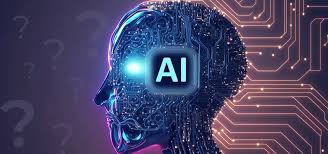
Microsoft
- Creates breakthrough products and services using AI and machine learning, including Azure Cognitive Services, Microsoft Translator, and Cortana.
Netflix
- Uses AI and ML technology to personalize content recommendations, artwork, and user interfaces for each subscription.
IBM
- To power its Watson platform, which offers a variety of applications for business, education, and healthcare.
- The reduction of human error and associated risk is the primary benefit of integrating AI.
- Artificial intelligence programs are always available, while humans work eight hours daily. Machines are always in operation, and chatbots with AI capabilities can assist customers even when they are not in use.
- People are biased and frequently disagree, which shows up in their decisions. Biases exist in all people, and despite our best efforts to address them, they occasionally manage to elude us. On the other hand, the program will be able to make decisions free from bias as long as the AI algorithm has been trained using objective datasets and examined for programming bias.
- Monotonous or repetitive work is involved in even the most fascinating jobs. This could include tasks like data entry and analysis, report generation, information verification, and similar tasks. By using an AI program, humans can avoid boredom with monotonous work and instead devote their energy to tasks that call for greater creativity.
- The largest and most evident disadvantage of using AI is that it can be very expensive to develop. The cost varies according to what specifically you need AI to do. An AI solution that was fully implemented for the majority of businesses is estimated to have cost anywhere from $20,000 to well into the millions.
- The inability of AI to make decisions based on emotion or creativity is its second drawback. AI is incapable of coming up with novel solutions to issues or being exceptionally creative in any area. Humans naturally take the emotional implications into account when making delicate decisions. AI is incapable of doing that; it can only decide what is best given the constraints at hand, regardless of the emotional implications.
- It's likely that you've utilized an AI-powered product or service without even realizing it in your daily life. Artificial intelligence (AI) is becoming more and more integrated into our daily lives. Examples of this include banking apps that look for suspicious transactions, automated spam filters that keep your inbox virus-free, and video streaming services that make show recommendations to you.
- Health care produces a wealth of big data in the form of patient records, medical tests, and health-enabled devices like smartwatches. As a result, one of the most prevalent ways humans use artificial intelligence and machine learning is to improve outcomes within the healthcare industry. Some common applications of AI in health care include machine learning models capable of scanning X-rays for cancerous growths, programs that can develop personalized treatment plans, and systems that efficiently allocate hospital resources.
- AI has had a significant impact on the business world, where it has been used to reduce costs through automation and generate actionable insights through the analysis of large data sets. As a result, an increasing number of businesses are considering incorporating artificial intelligence into their workflows. According to NewVantage Partners' 2020 research, 91.5% of surveyed firms reported ongoing investment in AI, which they saw as significantly disrupting the industry.
- Supply chains keep goods moving around the world. However, as supply chains become more complex and interconnected, the number of potential hiccups, stalls, and breakdowns increases. To ensure timely deliveries, supply chain managers and analysts are increasingly relying on AI-enhanced digital supply chains that can track shipments, forecast delays, and solve problems on the fly.
This website uses cookies to improve your experience.